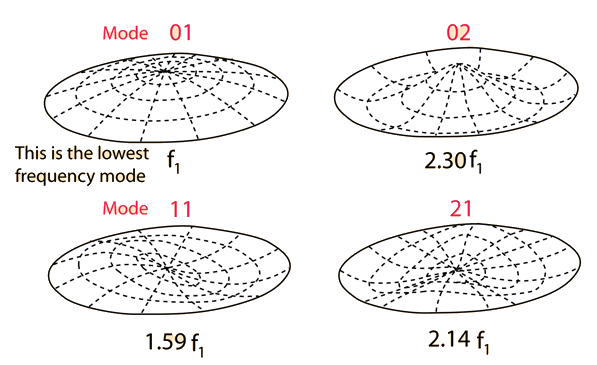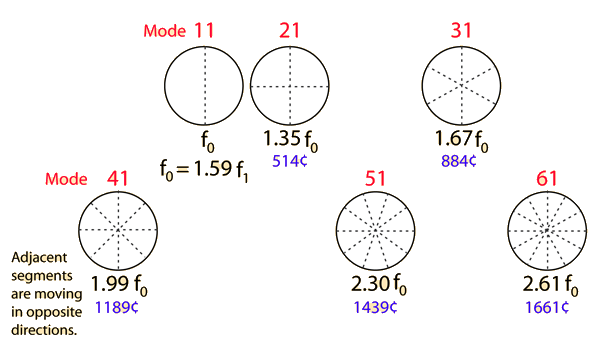Circular Membrane Modes

| Details of four lowest modes | Preferred modes for timpani | Discussion |
| Calculation for circular membrane |
Percussion instruments
Musical instruments
Reference
Berg & Stork
| HyperPhysics***** Sound | R Nave |
Circular Membrane Modes
|
Index Percussion instruments Musical instruments Reference Berg & Stork | ||||
|
Go Back |
Circular Membrane ModesThe four lowest vibrational modes for a circular membrane.  Mode 11 is the lowest of the preferred modes for the timpani. |
Index Percussion instruments Musical instruments References Rossing Science of Sound Ch 2 Morse & Ingard | ||
|
Go Back |
Preferred Timpani ModesAssuming that these selected modes are excited, the relative frequencies and intervals in cents are given compared to the 11-mode. The preferred vibrational modes for a timpani are a subset of the modes of a circular membrane.  The interval values in cents here are calculated from the mode frequencies given by Berg & Stork. They can be compared to equal tempered intervals. The actual sounding frequencies are affected by air damping. |
Index Percussion instruments Musical instruments References Backus pg 300 Berg & Stork | ||
|
Go Back |
Circular MembraneThe vibrational modes of a circular membrane are very important musically because of drums, and in particular the timpani. The expression for the fundamental frequency of a circular membrane has some similarity to that for a stretched string, in that it depends on tension and density. The fundamental or 01 mode of an ideal circular membrane is given by:  A timpani head, made of mylar of thickness about 0.2 mm might have the following values for those parameters:
The nature of vibrational modes in membranes is calculated from the wave equation in two dimensions. |
Index Percussion instruments Musical instruments References Hall Ch 9 Berg & Stork | ||
|
Go Back |